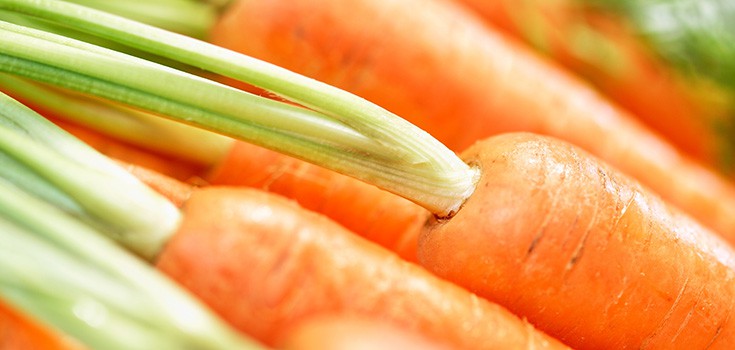Alpha-Carotene Rich Foods Like Carrots Prevent Cancer and Heart Disease

It’s common knowledge that carrots are good for your eyesight, but scientists with the Centers for Disease Control have found that they have a wealth of other benefits—including protecting against cancer and reducing the risk of heart disease.
As reported in The Telegraph, researchers evaluated 15,318 study participants. They found those with higher levels of alpha-carotene in the blood had lower risks of cardiovascular disease and cancer. As a matter of fact, participants with the most high levels of alpha-carotene were at a reduced risk of dying over a 14-year period.
Carrots, sweet potatoes, pumpkins, and other similarly orange vegetables are known to pack a serious antioxidant punch—rich in beta-carotene, alpha-carotene, and other carotenoids that are said to combat disease. These antioxidants protect the body at a cellular level from damage. There has even been genetic evidence showing how antioxidants kill cancer, with one lead researcher saying:
“Antioxidants have been associated with cancer reducing effects—beta carotene, for example—but the mechanisms, the genetic evidence, has been lacking. Now we have genetic proof that mitochondrial oxidative stress is important for driving tumor growth,” says lead researcher Michael P. Lisanti, M.D., Ph.D.
Though alpha-carotene is similar to beta-carotene, it “may be more effective at inhibiting the growth of cancer cells in the brain, liver, and skin,” according to the study.
In addition to the common orange vegetables, alpha-carotene can also be found in dark green veggies like broccoli, green beans, peas, spinach, collard greens, and turnip greens. These orange and green vegetables are more “strongly associated with a decreased risk of lung cancer,” than all other vegetables.
We all know vegetables can improve our health and even increase our life span. These findings merely substantiate those beliefs and give them scientific credence.
Occasionally, with studies like this comes a rush to the supplement store to find the nutrient in a conveniently packaged pill form. In this case, scientists are cautioning against such actions,essentially saying that beta-carotene supplements may not match up against natural food sources.
In other words — the benefits are found within the vegetables, and the antioxidants may lose some of their effectiveness when they are not found and consumed naturally within the food.
